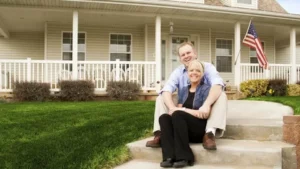What makes a caregiver essential in residential assisted living?
Caregivers play a vital role in enhancing the lives of seniors. Their presence brings comfort, support, and peace of mind. From offering emotional care to daily assistance, caregivers help residents feel at home.
But their impact goes beyond that. Let’s explore how caregivers contribute to the well-being of those in assisted living communities.
Providing Emotional Support
Caregivers provide important emotional support in residential assisted living. They help residents feel valued and understood. Caregivers listen to concerns and offer comfort when times are tough.
Many seniors may feel lonely or anxious. A caring caregiver can ease these feelings with kindness. They also encourage residents to connect with others.
This support is vital for mental health. It helps seniors adjust and thrive in their new homes. Caregivers truly make a difference in senior living.
Assisting With Daily Tasks
Assisting with daily tasks is a key role of caregivers in residential assisted living. They help residents with activities such as dressing, bathing, and eating. These tasks can be challenging for some seniors.
Caregivers make sure residents feel comfortable and safe while doing these activities. They also help plan fun things for retirees to do, such as games and outings.
This support helps seniors stay active and engaged. By assisting with daily tasks, caregivers improve the quality of life for residents.
Promoting Social Engagement
Caregivers promote social engagement in residential assisted living. They encourage residents to join activities and meet new people. Socializing helps seniors feel less lonely and more happy.
Caregivers often plan games, crafts, and group outings. These fun activities keep residents active and involved.
They also help residents talk and connect. They create a warm and friendly atmosphere.
This focus on social engagement is a key part of senior care. It helps seniors form friendships and enjoy their time together.
Monitoring Health and Safety
Caregivers monitor health and safety in residential assisted living. They check on residents regularly to ensure they are okay. This includes watching for any changes in health.
Caregivers help residents take their medicine on time. They also keep an eye on any special needs. If someone feels unwell, caregivers quickly alert a nurse or doctor.
Safety is very important – caregivers make sure that living spaces are clean and safe. They help prevent falls and accidents. This focus on health and safety helps residents feel secure and cared for.
Offering Companionship
Caregivers offer companionship in residential assisted living. They spend time with residents and listen to their stories. This helps seniors feel less lonely and more connected.
Many residents enjoy talking about their lives. Caregivers show interest and ask questions. This makes conversations lively and engaging.
Caregivers also join in on activities with residents. They might play games, do crafts, or go for walks together. These shared moments help build strong bonds.
By providing companionship, caregivers help improve the lives of seniors. Their caring presence brings joy and comfort. This support makes a big difference in a resident’s daily life.
All About Residential Assisted Living Services and Caregivers
Caregivers play a key role in residential assisted living. They help make it a safe and caring place for seniors. With their support, residents enjoy a better quality of life.
Caregivers bring comfort and care every day. Residential assisted living wouldn’t be the same without their dedication. They work hard to improve the lives of those they care for.
And before you go, be sure to read through some of our other helpful posts!




Be First to Comment